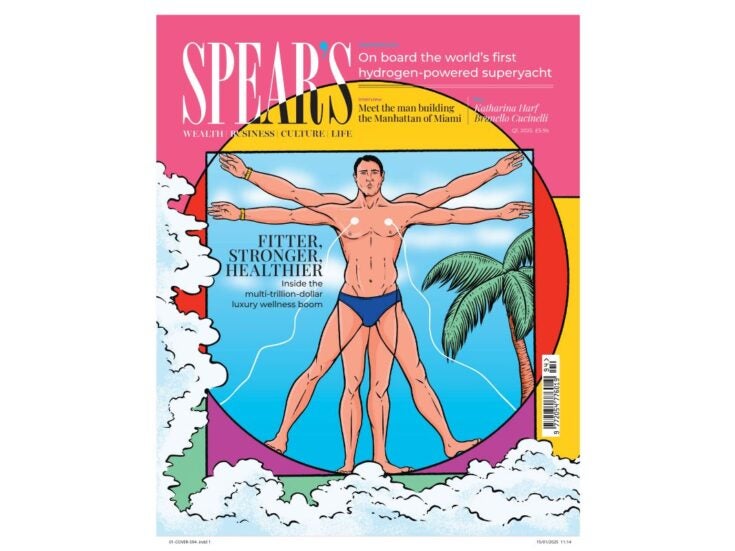The annual Gulls’ Eggs City Luncheon brings together 600 of London’s top wealth managers, bankers and lawyers to feast on the eggs and plum cake
Extreme sports have long been alluring to gentlemen of the City: evidently the adrenaline induced by staking their clients’ money and their careers on risky bets can’t be allowed to subside, hence trips up mountains and down submarine crevasses. One activity worth considering both for the danger and for the reward, were it not highly regulated, would be scaling vertiginous cliffs to retrieve gulls’ eggs.
As recondite as that seems, the gull’s egg – green, with dark speckles – plays a significant role in the City’s social and philanthropic calendar. The annual Gulls’ Eggs City Luncheon, held for the past few years in the airy chamber and sunny courtyard of Merchant Taylors’ Hall and this year on 17 May, brings together 600 of London’s top wealth managers, bankers and lawyers to feast on the eggs and plum cake. The eggs are a delicacy because Defra tightly controls their collection: only around 40,000 are gathered by 25 licensed specialists every year. They are a translucent grey when boiled and richer than hens’ eggs.
Zoe Couper, founder of strategic advisory and communications firm Couper & Partners, is in her second year as chairman, and sees a certain magic in the event which has kept it going for almost 25 years. ‘It’s slightly quirky,’ she says. ‘Eccentrically English. It brings people together: they can drop by for five minutes or stay for two hours. There’s no agenda, no seating plan, no speeches, no auction.’ Last year’s mix of guests saw retired City heavyweights queuing next to fresher-faced junior partners at law firms.

The luncheon was founded by Mark Cannon Brookes of Smith & Williamson. ‘There was a very well-known man of impeccable descent who had a grouse moor and they had a gullery too, so we didn’t need to ask permission [of the government]. They cost about 4p each. Unfortunately the gulls shoved off, but he continued to buy them.’ The eggs, due to their rarity, now cost £4 each.
‘It’s always been a rather exclusive party,’ he says. ‘Given its origin, it became self-marketing.’
The charitable aspect has been there since the start. Macmillan Cancer Support were the chosen charity and have remained so; the luncheon is their second biggest event in London, raising £94,000 last year. Part of the money comes from sponsors – the first were Hermes and De Beers, and this year Brewin Dolphin, Brown Shipley, Close, J.P. Morgan and Smith & Williamson are among them – part from ticket sales and part from a raffle.
To dispel fears of the luncheon ageing itself out of existence, younger members (under 40) were added to the committee, including Zoe, Harry Lawson Johnston and Rupert Robinson. Part of Zoe’s challenge has been to reinvigorate the event, ‘maintaining its integrity and tone’, she says, without ruining it for its more senior attendees. She has done this by broadening it out to other wealth management sectors – private equity and the hedgies of the West End, for example – and said that one idea under consideration was holding an additional event nearer Christmas in the West End.
The luncheon has acquired standing and it will be as full this year as ever, the true start of the City’s summer.







